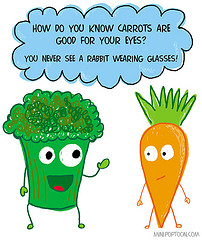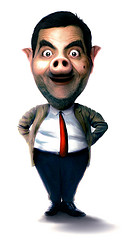2. Take serious things more seriously!
When Paco left the museum he went to the nearest bar he could see. His mobile phone rang, but he didn't pick it up. When he was asking for a cup of coffee it rang again, it was Andrés. While he was talking to him on the phone, something came to his mind. Despite he was upset because of the telling-off the black man had been given, he remembered his friends didn't like the jokes he sometimes told. They thought some of the jokes were really cruel. However, he smiled. This is the last joke he told them before starting his trip:
 |
| By anw.fr. Creative Commons |
A man left his cat with his brother while he went on vacation for a week. When he came back, he called his brother to see when he could pick the cat up. The brother hesitated, then said, "I'm so sorry, but while you were away, the cat died."
The man was very upset and yelled, "You know, you could have broken the news to me better than that. When I called today, you could have said he was on the roof and wouldn't come down. Then when I called the next day, you could have said that he had fallen off and the vet was working on healing him. Then when I called the third day, you could have said he had passed away."
The brother thought about it and apologized.
"So how's Mom?" asked the man.
"She's on the roof and won't come down."
His friends thought this joke was very cruel, and told him to take serious things more seriously.
Quite frequently, the comparative and the superlative of adverbs are formed exactly in the same way as those of adjectives. However there is one difference in two-syllable adverbs. It is that these adverbs normally form the comparative and the superlative with more and most instead of suffixes -er and -est as in the case of adjectives. Have a look at the following chart:
| Number of syllables | Positive degree | Comparative degree | Superlative degree |
| One-syllable adverbs |
fast, hard |
faster, harder | fastest, hardest |
| Two-syllable adverbs | quietly, slowly |
more quietly, more slowly | most quietly, most slowly |
| Three-or-more-syllable adverbs |
seriously, carefully |
more seriously, more carefully |
most seriously, most carefully |
Are there irregular adverbs? Yes there are. However, they are very easy since their comparative and superlative forms are the same as their correspondent adjectives. Here you can find the most frequently-used ones:
| Positive adjective/adverb | Comparative | Superlative |
| good/well | better/better |
best/best |
| bad/badly |
worse/worse | worst/worst |
| far/far |
farther/further | farthest/furthest |
| little/little |
less/less | least/least |
If you want to listen to a good explanation on the subject, watch the video on the right.
If you want to read some more information on the subject, you may click here. And if you want to do some exercises to improve and check your knowledge, click the exercises below before completing the self-assessment activity.
| Exercise 1 |
Exercise 2 | Exercise 3 |
Choose the correct answer to make comparative and superlative sentences.
1. Now, Paco speaks English ____________ than Andrés.
|
far better
| |
|
well
|
 |
| By jelene. C. Commons |
|
fluenter then | |
|
fluently than
|
|
as good as
| |
|
as well as
|
|
better
| |
|
best
|
 |
| By azrainman C.Commons |
A man asked for a meal in a restaurant. The waiter brought the food and put it on the table. After a moment, the man called the waiter and said:
"Waiter! Waiter! There's a fly in my soup!"
"Please don't speak so loudly, sir," said the waiter, "or everyone will want one."
-------------
Two Americans are talking. One asks:
"What's the difference between capitalism and communism?"
"That's easy" says the other one. "In capitalism man exploits man!
In communism it is the other way around!"